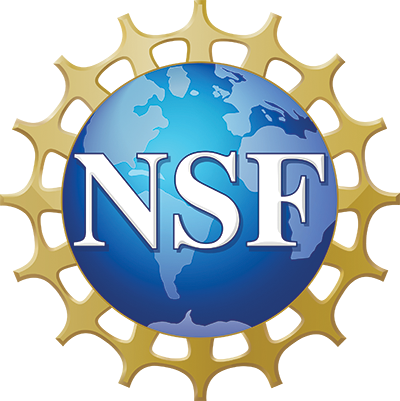A conversation about the successes and challenges with building a stellar CI workforce in NSF Major Facilities
CI Compass and CI4Resilience project are hosting a one-day workshop on June 29, 2021 for NSF Major Facilities (MFs), on creating a thriving workplace.
At the 2019 NSF Workshop on Connecting Large Facilities and Cyberinfrastructure, participants working in MFs described needs and challenges with building and developing staff that we had not heard discussed by those working in more mainstream academic research institutions. To explore this further, the Pilot conducted a series of interviews with managers at MFs to learn more about their experiences with hiring, retention, training and mentoring, work culture, rewards and recognition, and loss of personnel. From these interviews, we learned more about how MFs grow and develop their staff, what aspects of their staffing situations appear to be unique to working in an MF, and what aspects tend to resemble more typical academic research institutions. To continue to fulfill our mission of supporting and fostering the work of MFs, we are hosting this workshop to provide a forum for discussion and idea-sharing around professional development issues specific to MFs.
The workshop will focus on three main topics:
- Working in remote or distributed teams
- Working in non-traditional physical environments
- Creating a work culture that taps into intrinsic motivations
Who Should Attend
- This workshop is for MF staff at any level — new employee to seasoned manager — who are interested in professional development and helping their MF achieve its goals in creating a thriving workplace.
- If you work at partner organizations (e.g., SGCI, TrustedCI) or elsewhere in the MF ecosystem and also have interests in building and developing staff, this workshop may interest you as well.
- If you are employed at NSF and work with MFs or have particular interest in staffing and professional development in large research organizations, then we encourage you to attend as well.
Schedule (Tentative)
| Noon - 12:15pm EST / 9:00am - 9:15am PST |
Opening Remarks | Laura Christopherson (CI Compass) |
| 12:15pm - 1:00pm EST / 9:15am - 10:00am PST |
Keynote: Creating a Trained and Motivated User Base for Large Research Facilities and Their Data Drawing on lessons learned from four decades of use and engagement with management of the US Academic Research Fleet and other Ocean Science research facilities, the speaker will advocate for targeted training efforts and programs that help the science community understand what Large Research Facilities offer, how they are managed and funded, how they are accessed and scheduled, and the full scope of user responsibilities and risks. Such training programs can improve workforce retention amongst early career scientists, and foster collaboration and outreach. A 10-year retrospective will be given on the “UNOLS Chief Scientist Training Program” that was initiated in 2011 to provide such training to sea- going oceanographers. Evolving cyber infrastructure tools that may extend to remote facility users will also be highlighted. |
Clare E. Reimers, Distinguished Professor, College of Earth Ocean and Atmospheric Sciences, Oregon State University and Project Scientist for the RCRV Project |
| 1:00pm EST - 1:45pm EST / 10:00am - 10:45am PST |
Remote/Distributed Team Work Many MF staff are spread around the globe and have to find ways to coordinate their activities and collaborate effectively without the benefit of physical proximity. Many work in different time zones, different cultures, and different geopolitical situations--all of which can affect how work is done. |
Panelists:
Moderator: Jaroslaw Nabrzyski (CI Compass) |
| 1:45pm - 2:15pm EST / 10:45am - 11:15 PST |
Break |
|
| 2:15pm - 3:00pm EST / 11:15pm - Noon PST |
Non-Traditional Work Settings Many MFs are located in harsh environments (e.g., the Antarctic, around the sites of volcanoes and frequent earthquakes); or require extended work away from home, family, and friends (e.g., aboard ships on the ocean); or are situated in remote locales away from the hustle and bustle of a big city or a buzzing college campus and the opportunities those locales hold. We all spend a lot of time at work and one's physical work environment can impact health and well-being as well as the ability to be productive and achieve goals. |
Panelists:
Moderator: Mats Rynge (CI Compass) |
| 3:00pm - 4:30pm EST / Noon - 2:30pm PST |
Creating a work culture that taps into intrinsic motivations In this session participants will learn about the concept of intrinsic motivation and its three building blocks: autonomy, mastery, and purpose, as described by career analyst Daniel H. Pink. In his book, Drive: The Surprising Truth About What Motivates Us, Pink argues that the problem-solving needed in the 21st-century workplace will only be achieved by self-directed employees who have opportunities to develop their skills and contribute to something greater than themselves. |
Andrew Brown (Notre Dame) |
| 4:30pm - 4:40pm EST / 2:30pm - 2:40pm PST |
Wrap Up |
Moderator: Kerk Kee (CI Compass) |






